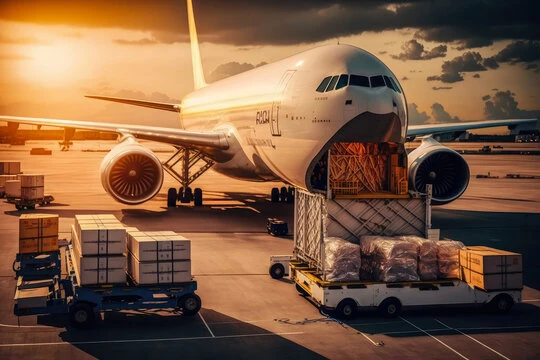Cargo by Air: The Future of Logistics and Transportation
The logistics and transportation industry has seen significant advancements over the years, and one of the most impactful developments is the rise of air cargo. Transporting goods by air offers numerous advantages, making it an increasingly popular choice for businesses worldwide. In this blog post, we will explore the benefits of air cargo, its impact on global trade, and what the future holds for this vital sector.
The Advantages of Air Cargo
1. Speed and Efficiency
Air cargo is the fastest mode of transportation for long distances. While sea and land transport can take weeks to move goods across continents, air transport can complete the same journey in a matter of hours. This speed is crucial for businesses that require timely delivery of products, such as perishable goods, high-value items, and urgent shipments.
2. Global Reach
With thousands of airports around the world, air cargo offers unparalleled global reach. This extensive network allows businesses to connect with markets in every corner of the globe, facilitating international trade and opening up new opportunities for growth.
3. Reliability
Airlines adhere to strict schedules, providing a level of reliability that other modes of transport often cannot match. This predictability is essential for businesses that operate on tight timelines and need to ensure their goods arrive on time.
4. Security
Airports and airlines maintain high-security standards, reducing the risk of theft and damage to goods. The controlled environment of air transport also minimizes the exposure of cargo to adverse weather conditions, ensuring products arrive in optimal condition.
5. Flexibility
Air cargo services can accommodate a wide range of goods, from small packages to large, bulky items. Additionally, the ability to offer express shipping options allows businesses to meet various customer demands and service levels.
The Impact on Global Trade
Air cargo plays a crucial role in facilitating global trade by connecting businesses with international markets quickly and efficiently. This connectivity is especially important for industries that rely on just-in-time manufacturing and lean inventory practices, as it allows them to maintain the flow of goods without excessive stockpiling.
Moreover, air cargo supports economic development by enabling the export of local products to international markets. For developing countries, this can lead to increased revenue, job creation, and overall economic growth. The ability to transport high-value and perishable goods by air also encourages the production of specialized products, further diversifying economies.
Innovations Shaping the Future of Air Cargo
The future of air cargo looks promising, with several innovations poised to enhance its efficiency and sustainability:
1. Automation and AI
The integration of automation and artificial intelligence (AI) is transforming air cargo operations. From automated sorting systems to AI-driven route optimization, these technologies are streamlining processes, reducing costs, and improving delivery times.
2. Drones and Autonomous Aircraft
Drones and autonomous aircraft are emerging as game-changers in the air cargo industry. These technologies promise to make last-mile delivery faster and more efficient, particularly in remote or hard-to-reach areas. Additionally, autonomous cargo planes could significantly reduce operating costs and increase the frequency of flights.
3. Sustainability Initiatives
The aviation industry is under pressure to reduce its carbon footprint, and air cargo is no exception. Airlines are investing in more fuel-efficient aircraft, exploring alternative fuels, and implementing carbon offset programs to mitigate their environmental impact. Sustainable practices are becoming a priority, aligning with global efforts to combat climate change.
4. Blockchain Technology
Blockchain technology offers enhanced transparency and security in supply chain management. By providing a decentralized ledger of all transactions, it ensures the integrity of data and reduces the risk of fraud. This technology can also streamline customs procedures, making international shipping more efficient.
Conclusion
Air cargo is an indispensable part of the modern logistics and transportation industry. Its speed, reliability, and global reach make it an attractive option for businesses looking to move goods quickly and efficiently. As technology continues to evolve, the air cargo sector is set to become even more integral to global trade, driving economic growth and connecting the world in unprecedented ways. Embracing these innovations will be key to staying competitive and meeting the demands of a rapidly changing market.

Related Blog